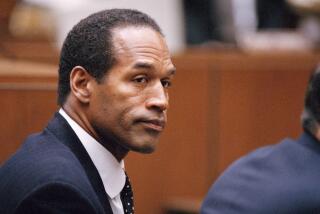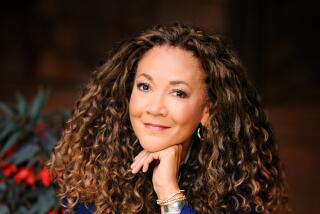White People Just Don’t Get It About Racism
- Share via
There is a thread that connects all black people’s experiences: the burden of skin color. This fact was brought home to me twice in the past few days, and the fault lines in American race relations were twice exposed.
A discussion on South Africa’s Truth and Reconciliation Commission always evokes some of those deep currents that run through the American historical memory. But sometimes there is an attempt to redefine, harness or, worse still, to silence these deep-running currents.
This silence was ruptured recently in a sermon by the assistant priest of St. Peter’s Episcopal Church in Cambridge, Mass. The priest, Anthony Miller, gave the silence a name, drawing out the historical threads that connect the lives of black people in the United States and in South Africa. What is the example of South Africa’s truth commission calling us to do, Miller asked? What work needs to be done regarding unhealed wounds in American society?
Miller posed the most asked questions in every discussion on the truth commission that I have led or attended. Taking us down the rigors of personal and historical memory, he mapped out the contours that mark the landscape of black life in America, reminded everyone that there is need for truth in our lives and uttered that most silenced word in American conversations: slavery. His story resonated with mine as a child and adult under apartheid South Africa, marking the first point of connection that linked my past to the historical burden of being black in America.
The story of my life was reenacted recently when I was looking for a place to rent in the Belmont suburb of Boston. The real estate agents were enthusiastic, saying the right things to dispel the racial attitude that was silently seeping through the conversations with would-be landlords. In an attempt to compensate for my blackness, the realtors mentioned my “background”--being a visiting fellow at Harvard University and being a clinical psychologist from South Africa--more times than I do in my resume. But it made no difference that I had the respect of my colleagues in one of Harvard’s research institutes.
To many of my prospective landlords, I was merely a black, and that is the only “credential” that mattered. It occurred to me that white people never have to wonder about the intrusion of race in the important decisions concerning where they live or work or where their children go to school. Some of the white people I talked to about my experiences tried to dismiss my suspicions, claiming that race could not have been a factor in the rejections. And when a white friend found out that an apartment I was told was rented was still available, they were dumbfounded, a response that says more about their discomfort concerning the subject of racism than any other feelings they might have had about my experiences.
Why should the subject of racism bring shame and embarrassment to some whites even if they are not the ones expressing those attitudes? The answer lies in the complex and intricate past that is part of the historical memory of societies that have to deal with racism. The constant silencing and denial of that memory is an attempt to master, to conquer and finally to crush history. It is a history that links them to the evil roots that gave birth to it. To embrace this history would be to threaten their sense of humanity. So it is better denied as something of the past. When it comes to the question of racism, very few people can confront it openly and truthfully.
But there is indeed a need for truth in our lives. The model of South Africa’s Truth and Reconciliation Commission may not be the answer to the American experience. Yet it offers something of value. The problems of South Africa were addressed--certainly not resolved--through the voices of first-generation victims and perpetrators. The truth commission put a face and a name to atrocities of the past. Perpetrators were publicly exposed and rigorously questioned by victims and survivors--a crucial part of healing.
Is there a lesson in this for how to heal the wounds in American society? Its troubling past is removed from the present by several generations. But its legacy continues to live in the silence. When Miller or others ask the question of what needs to be done regarding unhealed wounds in American society, it is a crying out for the silence to be given a voice.
Facing history can be liberating or imprisoning, says Pulitzer Prize winner David Shipler. It can unite or divide. South Africa took the risk to face its history, and there is some satisfaction in knowing that we found a language to speak about the ghosts of the past. Even if the burden of being black follows me to foreign lands, even as my life under the scourge of apartheid racism is reenacted in American society, it gives me a sense of peace to know that back home we figured out a way to talk about the past.
More to Read
The biggest entertainment stories
Get our big stories about Hollywood, film, television, music, arts, culture and more right in your inbox as soon as they publish.
You may occasionally receive promotional content from the Los Angeles Times.










